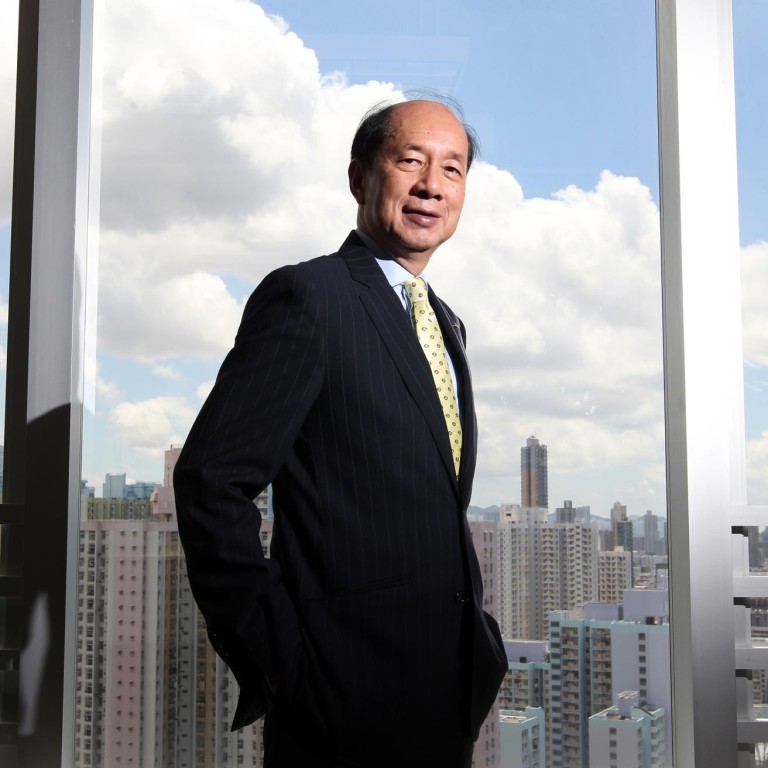
Business pushes for trade-based seats in Legco
Retaining the functional constituencies will keep the balance in Legco, says business leader who proposes a compromise voting system
A business leader has defended the relevance of trade-based seats in the legislature, saying criticism against such positions can be tackled by scrapping a voting system that requires support from both types of constituencies.
Keeping the functional seats could also be a form of universal suffrage if their voter bases were expanded, Federation of Hong Kong Industries chairman Stanley Lau Chin-ho said.
The four chambers of commerce together take up four trade-based seats on the 70-seat Legislative Council.
Lau said that only by sending its own representatives to Legco could the business sector truly express its views.
"It is very hard for businessmen to run in a direct election, as they do not support welfarism, which attracts votes," he told the .
Giving the business sector a voice in the council would maintain a balance and prevent the council from becoming overly focused on welfare, he said.
Bills and motions tabled in Legco need the majority support from both geographical and functional constituencies to be passed.
Geographical-seat lawmakers are directly elected by their constituents, but their trade-based counterparts are elected by much smaller voter bases, whose sizes vary from sector to sector.
Some functional constituencies are elected by businesses, allowing them to manipulate the ballot.
Liberal Party chief James Tien Pei-chun and his brother, Michael Tien Puk-sun of the New People's Party, were businessmen who were directly voted into Legco by their geographical constituents instead of the support of their industries.
"There are not many Tiens in Hong Kong, and indeed, they do not truly represent the business sector - they would not dare to ignore voters' welfare demands totally when they actually need those votes," Lau said.
Pan-democrats have criticised the current separate voting arrangement that allows motions supported by directly elected lawmakers to be vetoed by trade-based lawmakers.
Lau suggested a compromise that would abolish the current practice in exchange for retaining the functional constituencies.
"The changes, including [scrapping] the voting arrangement and widening the voter base, could be implemented by 2016 or 2020."
Lau also said controversy over political reform was the basis for the polarisation of society.
He cited a recent row between police and a teacher that had quickly taken on a political shade, drawing scores of supporters on both sides of the divide.
He hoped the pan-democratic camp could openly discuss reform proposals with different parties, but not use the Occupy Central civil disobedience campaign to threaten the government.
"There isn't just one form of universal suffrage in the world," he said. "An election with a screening process could be one, too."
He acknowledged that Chief Executive Leung Chun-ying had not done much in his first year in office, caught up as he was with endless scandals plaguing the government.
"Former chief executives Tung Chee-hwa and Donald Tsang Yam-kuen were not chosen by a direct election either, but they didn't go through the hard time Leung is having now," Lau said.

